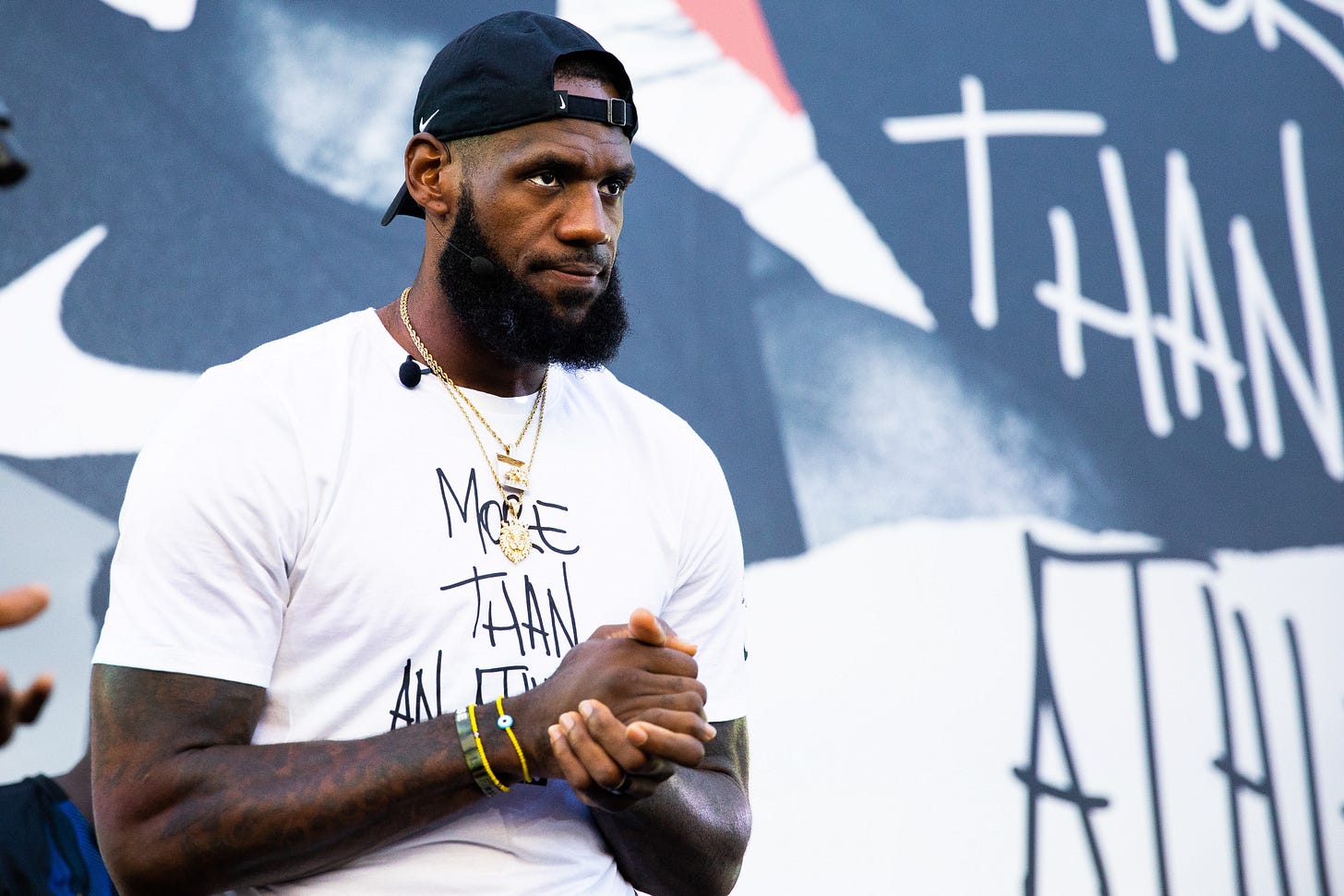
Anyone who knows me well knows I have a personal affinity for LeBron James. As he gets set to play in his tenth NBA Finals of his 17-year career, I believe he is the greatest professional basketball player in the world (ESPN analyst Stephen A. Smith also happens to agree).
But more than that, LeBron James is one of the greatest change-makers beyond professional sports. His core message and personal brand embody what he stands for most — that every athlete is “more than an athlete.”
I am most definitely a LeBron fan because of his athletic prowess and accomplishments as a basketball player. But more than that, I am a LeBron fan because I love his personal story and what he stands for beyond basketball.
For me, LeBron’s narrative goes something like this:
After becoming a high school prodigy, LeBron started his NBA career at age 18 as the number one pick for the Cleveland Cavaliers in his home state of Ohio. He left Cleveland for Miami in 2010 to join Dwyane Wade and Chris Bosh in hopes of winning his first championship. However, after securing two rings in Miami, LeBron came to realize that winning championships wasn’t as important as how he won and who he won for.
He decided to return home to Cleveland in 2014 with an intention to win a championship for his home state fans. In 2016, he delivered his promise after coming back from a 3-1 series hole to the Golden State Warriors. In 2018, LeBron seized an opportunity as a free agent to go to Los Angeles Lakers, recognizing the special ability to both play for a legendary franchise and grow his media influence in the center of America’s television and film industry. This week, he will play for the chance to win his fourth title and the Lakers’ first since 2010, made even more meaningful after the tragic passing of Laker legend, Kobe Bryant, earlier in the year.
While LeBron’s first two championships were primarily meaningful to him and his personal legacy, his third and potentially fourth are meaningful for the communities who support his team. Unlike the first two titles, these two symbolize something greater than just another ring on his finger, another boost for his resumé as one of the greatest basketball players of all time. They represent an intention that goes beyond basketball.
Over the course of his career, LeBron has learned to used his athlete platform as a tool to lift up and give voice to underserved communities. As aforementioned, LeBron graduated from St. Vincent-St. Mary High School and went straight to the NBA at age 18. Despite not attending college, one of his core commitments has been to the holistic education and development of children. In 2018, he opened the I Promise School in his hometown of Akron, Ohio to provide at-risk youth a space where educators can fully support, nurture, and believe in them.
At the same time, LeBron has received critical words for his work outside of basketball. Despite Fox News host Laura Ingraham told LeBron to “Shut up and dribble,” he continues to be one of the most outspoken activists in the African-American community. LeBron recently launched More Than A Vote to fight black voter suppression and has also advocated to convert NBA arenas into voting sites for the 2020 presidential election. After a pivotal Game 4 win in the Western Conference Finals, he sounded like a man demoralized, a player who genuinely didn’t care about the outcome of the game as much as the outcome of the Breonna Taylor case.
The “GOAT” or “greatest of all time” debate about his ranking as a top professional basketball player will go on forever. But the first word that comes to me when I think about LeBron James is not “GOAT” but “steward.” And even at 35 years old with many more years left to play basketball, I believe LeBron has already claimed that title.
Stewardship is about being responsible for one’s resources and using one’s platform for the betterment of society. In my opinion, LeBron has used his resources and platform as a prolific athlete in the public eye more responsibly and more effectively than any other athlete I have witnessed in my lifetime. For me, LeBron James reframes how athletes define themselves and understand their place in the world. He embodies “more than an athlete” for athletes, but more so demonstrates for all of us how we we are called to use our voices and platforms for the good of our communities around us.


